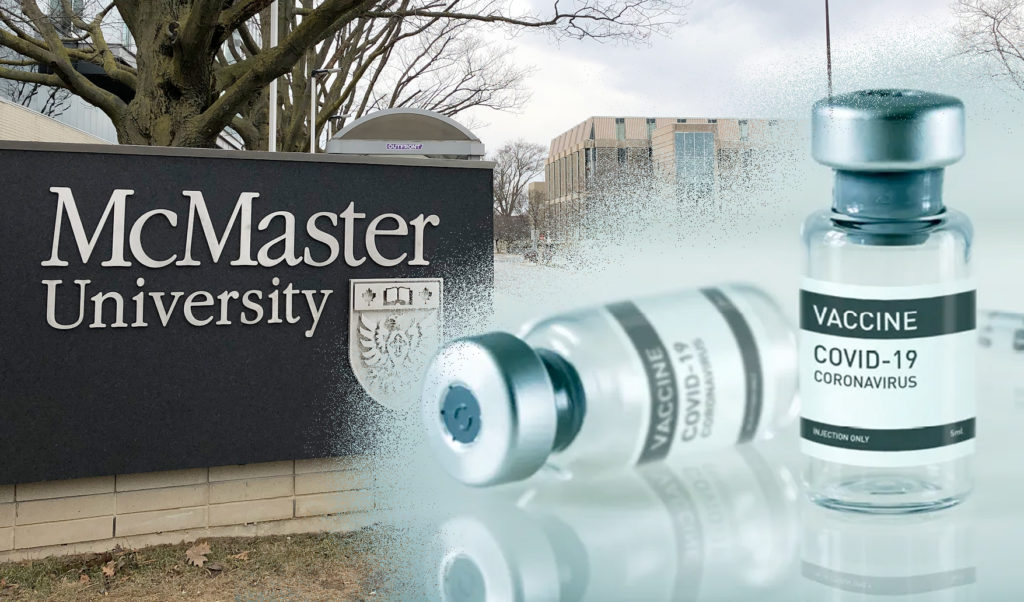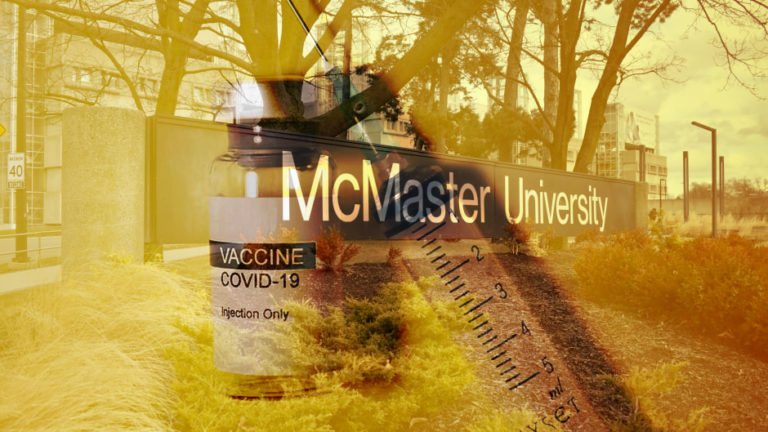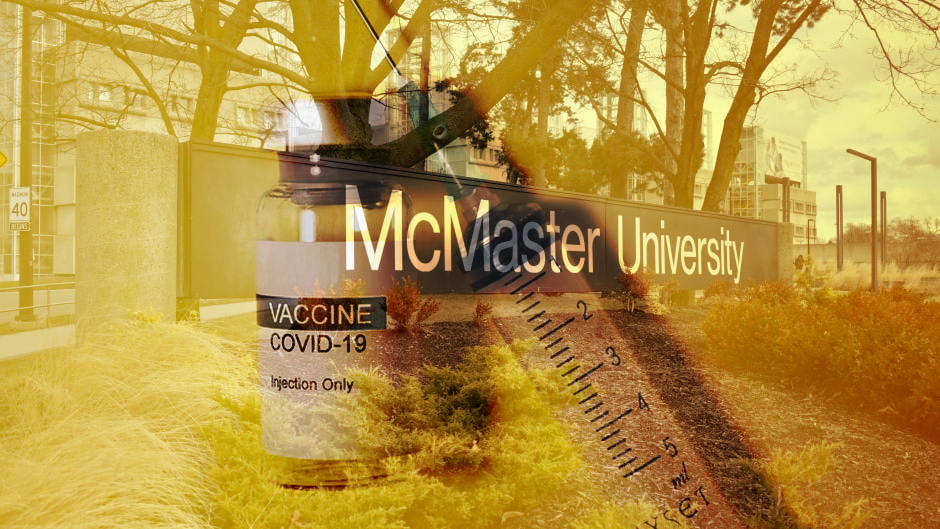McMaster University introduces mandatory Covid vaccination policy
McMaster University introduced a mandatory Covid vaccination policy in its 2021 fall term. The policy required all students to take two doses of an approved Covid vaccine. Students who refused to be vaccinated or who refused to disclose their personal medical information would be unenrolled from their programs of study. While the university Equity and Inclusion Office did consider exemption requests, students were not told that they would be unenrolled if their exemption requests were denied.
According to McMaster’s own vaccine FAQ website page, available Covid vaccines were known to have been tested against a cell-line known as HEK-293 – “replications of tissue from elective abortions that happened 30 to 60 years ago.”
Four students did not feel comfortable with the approved Covid vaccines. Citing their religious convictions about abortion and byproducts of abortion procedures, two doctoral students, an MBA student, and a biochemistry student requested exemptions from McMaster’s mandatory vaccination policy. Lawyer Rob Kittredge described them as “devout Catholics or Orthodox Christians who, according to their faith, are obligated to avoid condoning or benefitting from abortion.”
The Equity and Inclusion Office refused their requests, however, claiming that there was no connection between the students’ religious beliefs about abortion and their refusal to receive the Covid vaccine.
“While others may come to a different conclusion, these students’ religious beliefs require them to decline vaccination. McMaster’s claim that these students’ exemption requests have no nexus with their religious beliefs is absurd,” Mr. Kittredge continued.
McMaster University then unenrolled the students from their programs of study.
Students ask Ontario Superior Court of Justice to review McMaster’s decision
In March 2022, our lawyers filed an application for judicial review against McMaster University’s decision to unenroll the students from their programs. (A judicial review is a process by which courts ensure that the decisions of administrative bodies (e.g., McMaster University) are fair reasonable, and lawful.)
“McMaster’s decisions to potentially destroy the academic and future professional careers of these bright and promising students was heavy-handed and cruel. These students are honest, intelligent and sincere in their beliefs. We asked the Court to find that the University’s decision was unreasonable and that the process leading to it was unfair,” remarked Jorge Pineda, legal counsel for the students.
A two-day hearing took place on March 16 and 17, 2022, before a panel of three judges of the Ontario Superior Court of Justice Divisional Court. Unfortunately, the Court declined to decide on the reasonableness of McMaster’s decision. In the Court’s opinion, the Human Rights Tribunal of Ontario (HRTO) was an adequate alternative to judicial review.
Five students argue discrimination to the Human Rights Tribunal of Ontario
Not deterred, five McMaster University students filed applications with the HRTO in October 2022. Each student is seeking compensation from McMaster University for discriminating against them. Each student holds religious objections to abortion and to any medical byproducts of abortion procedures.
On October 20, 2023, the HRTO accepted the applications of the five students.



